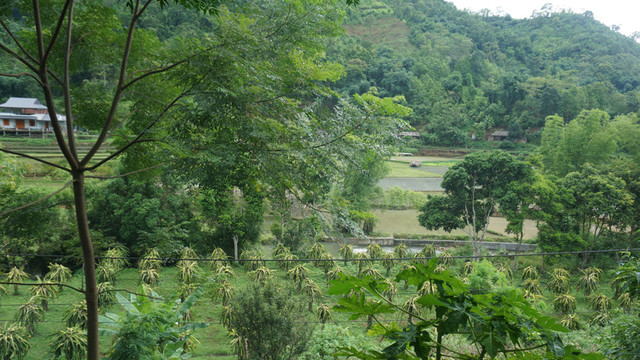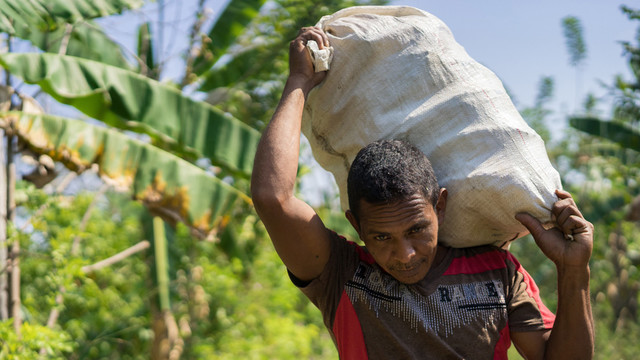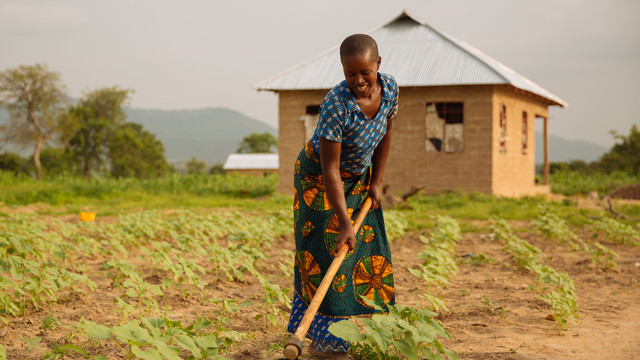Flaming parrots and palmetto palms
A new business opportunity could help protect Belize's Yellow-headed parrots and benefit local communities as well.


Pre-emptive controlled burning in Belize is preventing severe uncontrolled wild fires during the driest months (Photo: Toledo Institute for Development and Environment)
Savannah forests in Southern Belize are a burning issue right now. It is not just that intense dry-season fires and expanding populations are degrading these resources in an increasingly variable climate. The forest land itself has also recently become a hot topic in relation to land rights.
Back in 2014 the Inter-American Commission on Human Rights (IACHR) lit a slow burning fuse. They published a report recognising Maya people's collective rights to land traditionally used and occupied in Toledo.
Based on this report, the Maya Leaders Alliance and Toledo Alcaldes Association (TAA) brought legal action against the government on behalf of 38 communities. In 2007, the Supreme Court of Belize ordered the government to recognise indigenous land rights and demarcate and title their land.
In 2010, the Supreme Court clarified that the judgement applied to Maya throughout the southern region of Toledo. It also issued an injunction prohibiting natural resource use concessions throughout Toledo. The government appealed but lost the case in 2013. Following a further appeal to the Caribbean Courts of Justice (CCJ), the final ruling in April 2015 was that Mayan traditional land rights constitute property equal in legitimacy to any other form of property under Belizean law.
Promoting locally-controlled forestry
The government also published a new forest policy in 2015 promoting commercial forest use on community-owned and managed land for both timber and non-timber production. It advocates small forest product processing enterprises and expanding agroforestry and private forests on private farm land.
What is clear is that the era in which commercial forestry in Belize was exclusively the preserve of large-scale forest business is coming to an end. It is being replaced by a more balanced mix of forest enterprise that includes both large industrial businesses and smaller community businesses.
With the changing control over forest land have come inevitable tensions between different groups. Finding constructive routes to reduce such tensions is important.
Addressing the common threat of uncontrolled wild fires may provide just such a route. Rather bizarrely, it involves communities actually setting fire to the forest (albeit at an appropriate time). Here's how it works.
The Toledo Institute for Environment and Development (TIDE) and University of Edinburgh (UoE) are training local communities in how to use pre-emptive controlled burning to prevent severe uncontrolled wild fires during the driest months. This will benefit existing large-scale forest businesses and support the work of the Forest Department, which wants to limit the damage from forest fires.
But communities may now also wish to become involved in fire management because now, at last, they are beginning to feel some ownership over the forest resource itself.
Finding business opportunities
IIED has been brought in to support the development of community forest businesses as part of the "Conservation of pine woodland biodiversity in Belize through community fire management" initiative.
The idea is basically this. The greater the commercial returns from sustainable forest use, the greater the incentive to protect the forests from intense dry-season fire (through more benign controlled wet-season fires).
And the more the forests are protected from intense dry season fires, the richer the savannah forest resource will become. Biodiversity and people will both win.
So, business development and fire management within forest communities are now sharply in focus.
Seeding a new business
One possible opportunity is to develop the palmetto seed business.
Palmetto (Acoelorraphe wrightii) is a rather shapely palm, which grows 5-8m tall in clumps in tropical Savannah from South East Mexico to Northern Costa Rica (and also in Cuba). Palmettos are known to flower and seed readily after burning but are vulnerable to fire impacts. Flowers and berries can be destroyed by dry-season fires.
Palmetto seeds are an important food source for many birds and animals, including the iconic and endangered Yellow-headed parrot (Amazona oratrix). Intense dry season fires are therefore a threat to both Palmetto palms and the Yellow-headed parrot.
 The solution may be found in developing businesses in concert with good fire management practices such as avoiding burning in the dry season.
The solution may be found in developing businesses in concert with good fire management practices such as avoiding burning in the dry season.
And a new business opportunity is emerging. Palmetto seeds, also known as 'Popta', are increasingly being harvested for the extraction of a chemical compound which is believed to be beneficial in common prostate gland ailments. The market is large and lucrative. And local communities are already supplying a single trader with an export permit for the product.
Fire management is known to increase the regeneration, and safeguard the Popta for harvesting. So provided this can be done in a sustainable way, business development and the conservation of biodiversity can go hand in hand.
As a first step along that road, the Forest Farm Facility (FFF) has offered to include leading Popta collectors in an exchange visit with a well-established Guatemalan community cooperative (FEDECOVERA) that manufactures coffee, cacao, cardamom, timber and even runs an eco-tourism business.
The FFF supports forest-farm producer organisation for business and policy representation – and already supports a highly successful programme in Guatemala – through which a national alliance of community forest producers have shaped national financial incentive programmes to the benefits of millions of their members.
The idea is to link community leaders from Belize to that programme and expose them to the benefits of collective action, such as the capacity to negotiate better prices, share and thereby reduce costs, broaden their market networks, and have the strength in numbers to influence decision-makers. They will learn the organisation structures that have delivered successful business models in Guatemala – hoping that there may be ways of applying that to Popta.
The outcomes could be good news for both the communities of Toledo and the Yellow-headed parrot.
Duncan Macqueen (duncan.macqueen@iied.org) is a principal researcher in the forest team within IIED's Natural Resources Group.


